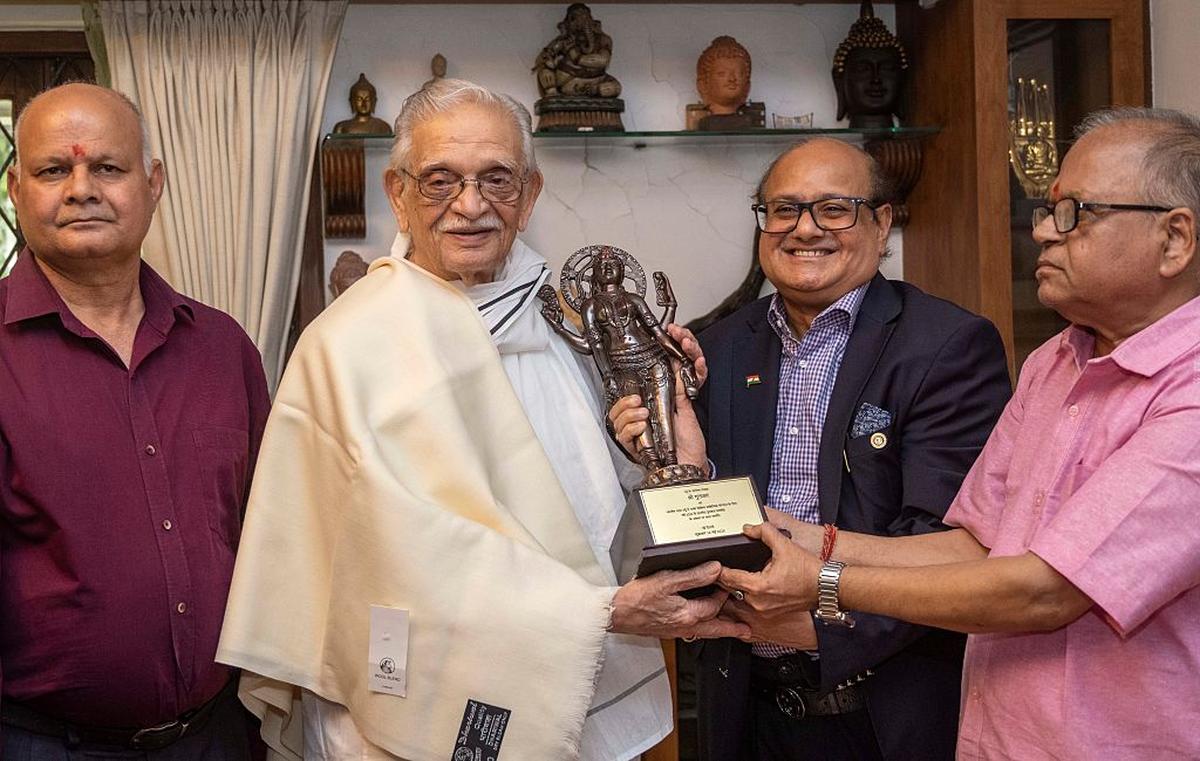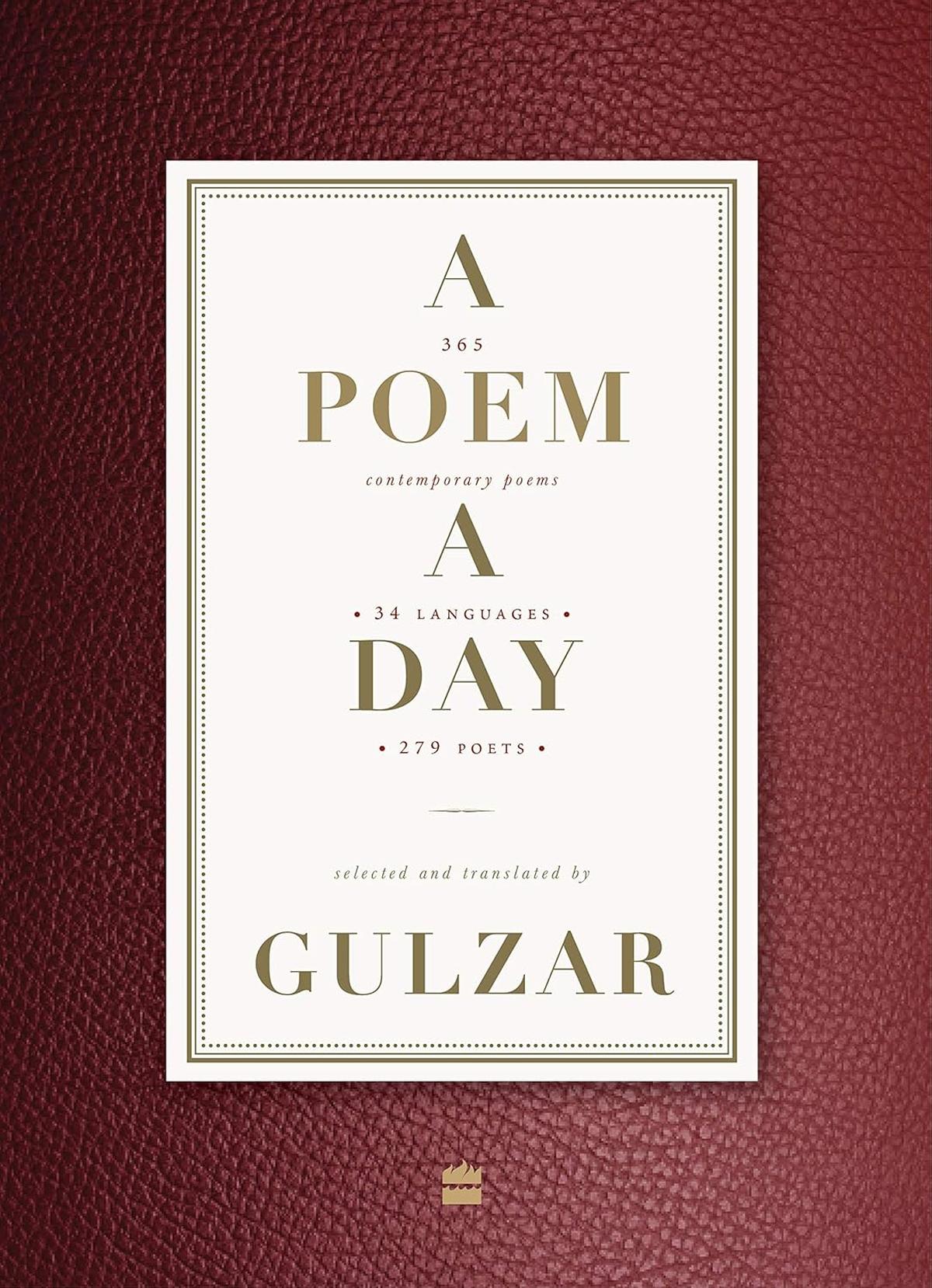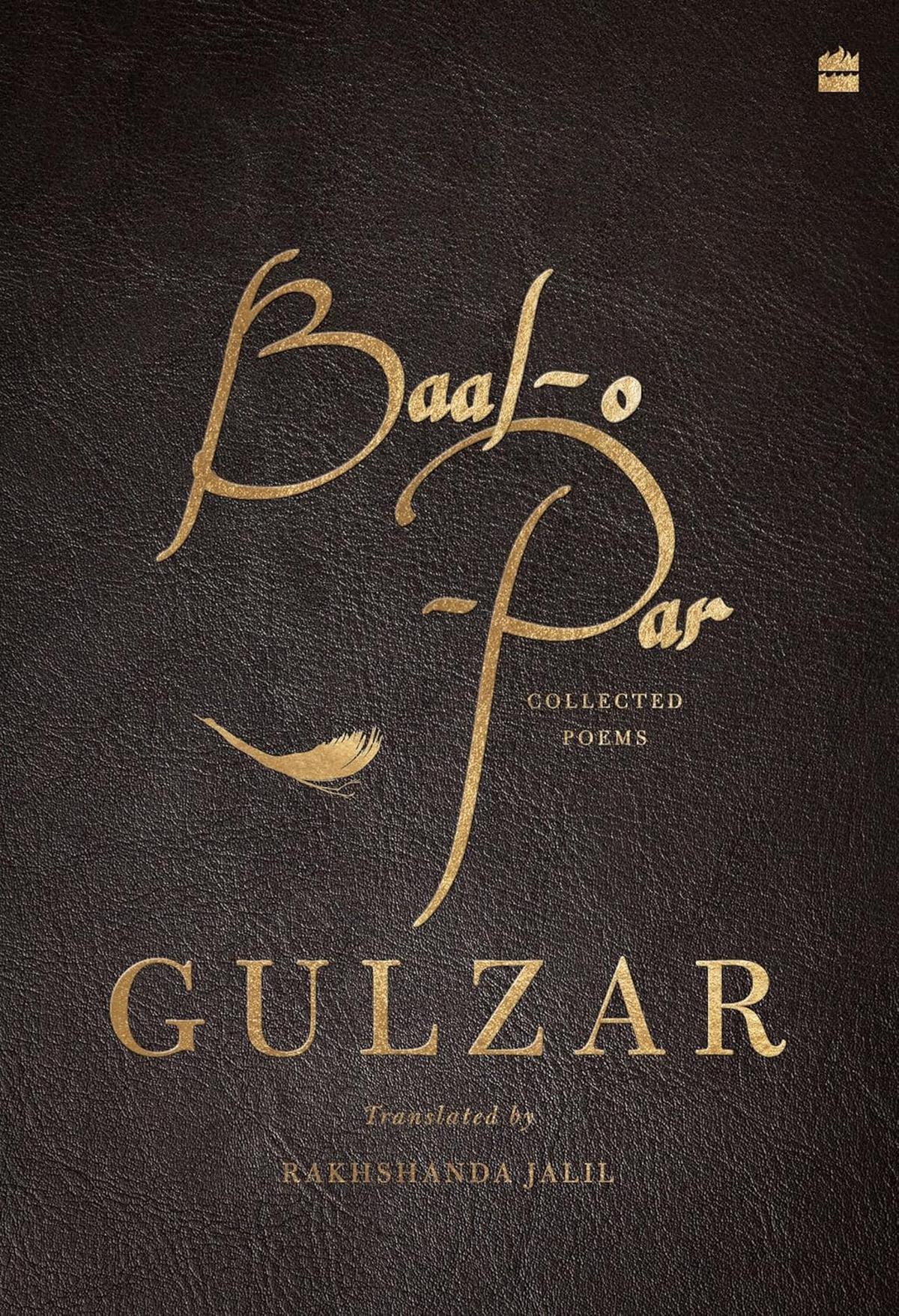
Gulzar has liberated Urdu poetry from its high-rhetorical Indo-Persian conventions and time-worn collocations.
| Photo Credit: V. Sudershan
What can you give a man who already has 22 Filmfare awards, a Grammy, an Oscar, and the Dadasaheb Phalke Award for Lifetime Achievement in Indian cinema? The answer: a Jnanpith award, which is similarly a lifetime achievement award in Indian literature. It was given to Gulzar a few days ago. No person has come even close to winning both these awards before, and that represents both the uniqueness and the paradox of being Gulzar.
Known primarily for his film lyrics, Gulzar has become a part of the emotional landscape of several generations of Indians. But cinema in India is still considered common and low-brow and carries a taint. Gulzar’s cinematic celebrity has thus served to obscure his literary achievement as an Urdu poet of the highest order. His naghme (lyrics) have eclipsed his nazmen (poems), rather as Rahu eclipses the moon. Gulzar himself prizes literature far above cinema. As he once put it, films are like clouds that come and rain and then roll away while literature has a permanent presence, like the blue sky above.

Gulzar being presented with the 58th Jnanpith Award at his residence in Mumbai on May 22, 2025.
| Photo Credit:
Getty Images
Gulzar’s daring originality as a poet begins with the fact that his staple form of composition is not the ghazal but the nazm. The more popular ghazal is a series of stand-alone couplets linked together only by the clackety-clack rhyme-word, which is a sure-fire applause-catcher. A nazm, in contrast, is a poem on a single theme, which the poet explores at some length. It is often quietly contemplative in tone.
Gulzar has gone further by often renouncing rhyme, which even Faiz and Firaq relied on in their nazms. Crossing another boundary, his unrhymed verse often turns into free verse, as he discards metre too in favour of lines of uneven length. Another feature that makes his poetry cosmopolitan and modern is his penchant for short imagist poems, where the vividly evoked image speaks for itself.
Love and burning cars
In terms of his themes too, Gulzar has liberated Urdu poetry from its high-rhetorical Indo-Persian conventions and time-worn collocations. His subjects range from the dehumanising mundanity of metropolitan life to cosmic speculations. Each morning, he says in a nazm, he is granted an allowance of a day but by the evening, it has slipped from his pocket or been snatched by someone; the day ends up like a shorn and bleating lamb heading to slaughter.

But nature heals. Gulzar offers us a glimpse of boats with sails fully puffed up, as if holding their breath. We see mountains with their peaks floating among clouds, their feet planted firmly in icy water, and a lofty air about them of solemn stillness. And even higher above are the cosmic bodies. This sun is a dwarf/ It can’t light up each cranny of my being.
Gulzar’s love-poems too are refreshingly different. His lovers are not half-mad adolescents yearning for they know not what; rather, they are adults who have already experienced bittersweet love with multiple unions and separations. I broke off a couple of dry branches from my past/ …You too produced some old and crumpled letters/ With them we lit a fire and warmed our bodies/Stoking up dying embers through the night.
In the wide world beyond, cars burn on streets and rioters go rampaging in gangs. Why don’t you show this too, the poet asks, in a Republic Day tableau?

The whole spectrum
Besides poems, Gulzar has also written over a hundred short stories, a novel, books for children, and screenplays for biopics on Mira and Ghalib. He made a tele-series on Premchand’s short stories, and has translated two volumes of Tagore’s poems into Urdu.
He has edited a 954-page anthology — titled A Poem a Day — of 365 poems by 279 modern poets from 34 different languages, with both Hindi and English translations. It took him nine years to complete. He is a writer soaked in literature and devoted to all forms of it.
The lyrics and the poems of Gulzar are rather like twins born of the same womb but then separated, to follow widely different life-trajectories — as in many old Bollywood films like Ram Aur Shyam. Last year, in a fortuitous but even-handed development, over 650 of Gulzar’s nazms/ poems were published in a bilingual Urdu/Hindi-English edition titled Baal-o Par/ Fur and Feathers (with English translations by Rakhshanda Jalil), while 500 film songs of his were collected under the title Gungunaiye (Hum Along).
Travelling together with Gulzar once, I overheard at the Goa airport a sophisticated-looking lady of a certain age whisper to her companion in a tremulous tone: “Can’t believe I’m standing just 10 feet away from Gulzar saheb!” One hopes she could not only hum some songs by Gulzar but had also read some of his nazms, the real stuff.
The writer taught English at Delhi University.
Published – May 30, 2025 09:30 am IST


